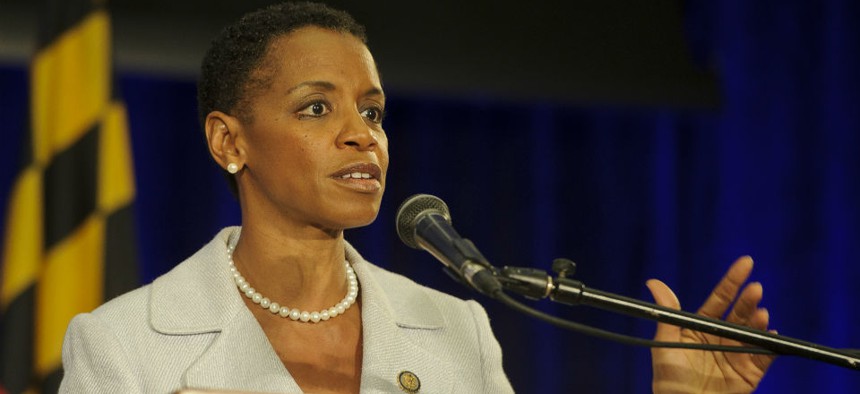
Rep. Donna Edwards, D-Md., introduced the bill. NASA/Paul E. Alers
Bill Would Repeal Recent Pension Contribution Hikes
Legislation would reset all feds to pre-2013 contribution level.
A new bill would walk back retirement pension contribution hikes for new federal employees, approved by Congress in recent years to address deficit concerns.
The legislation -- introduced by Rep. Donna Edwards, D-Md., and cosponsored by Rep. Gerry Connolly, D-Va. -- would repeal two separate increases on the amount federal workers must pay toward their pensions. A 2012 law to extend unemployment insurance forced employees hired in 2013 and those with less than five years of federal experience to pay an additional 2.3 percent for a total of 3.1 percent of each paycheck toward their defined benefit. The 2013 budget agreement required all employees hired after 2013 and with less than five years of federal experience to pay a total of 4.4 percent of their salaries toward their Federal Employees Retirement Systems accounts.
Employees hired before 2013 contribute just 0.8 percent of their pay to their pensions.
Federal employee groups were quick to praise the legislation.
“These cuts to federal retirement have no justification other than to scapegoat federal employees for an economic crisis they had no part in creating,” wrote American Federation of Government Employees Legislative and Political Director Beth Moten, in a letter of support. “No other group of middle-class Americans has contributed to deficit reduction the way federal employees have, and it is time to find other ways to reduce the deficit than continually taking from working and middle-class workers who have dedicated their lives to federal service.”
Joseph Beaudoin, president of the National Active and Retired Federal Employees Association, said the $120 billion feds have contributed toward deficit reduction is more than enough.
“These increases in retirement contributions came at a time when federal employees’ pay was frozen, sequestration budget cuts threatened their jobs and unpaid furloughs undermined their earnings,” Beaudoin said. “In addition, the 16-day government shutdown [in October 2013] plunged federal employees into a stressful period of great financial uncertainty.”
NARFE added the higher contribution rates for new employees are driving away potential young employees from federal service, who agencies have already struggled to recruit.
NEXT STORY: Can You Count On Social Security?







